The ‘Science in the Territory: Voices and Experiences in Rural Schools’ conference, held at the Terra Museum in L’Espluga de Francolí, brought science to rural areas. The event provided a platform for sharing inspiring experiences and scientific projects developed in rural schools and communities in Catalonia and other regions of Spain. The aim was to promote interconnection and foster new collaborations between individuals and organisations in the scientific, educational, and social spheres.
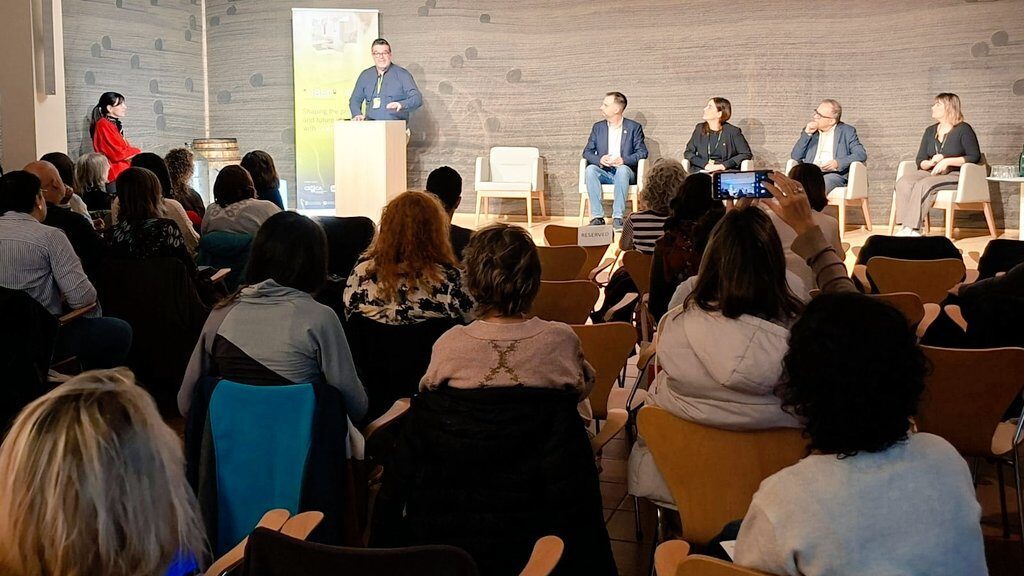
On Saturday 8 November, the Terra Museum in L’Espluga de Francolí hosted a conference entitled ‘Science in the Territory: Voices and Experiences in Rural Schools’. This event was organised by the Institute for Bioengineering of Catalonia (IBEC), the Secretariat for Rural Schools of Catalonia (SERC), and the museum itself. Nearly 60 people attended the event, including teachers, researchers, institutions and organisations, who came together to share STEAM projects developed in rural schools and reflect on the role of science in these environments.
Science is universal and has no borders. It cannot remain in laboratories; it must also reach rural areas.
Josep Samitier Martí
The conference focused on the need to bring scientific outreach activities to areas with limited access, promoting equal access to scientific and technological knowledge and equitable education connected to future challenges. Through participatory activities such as flash presentations and an open fair for families, inspiring experiences were shared that demonstrate the transformative potential of science in rural areas.
Aida Boix Grau, director of the Terra Museum, opened the conference with a presentation in the opening session, emphasising the museum’s role in connecting society with the rural world. Antoni Comajoan Bofarull, coordinator of the Secretariat for Rural Schools of Catalonia (SERC), then emphasised the importance of expanding the network of rural schools to raise the profile of sometimes overlooked territories. Josep Samitier Martí, director of IBEC, reinforced this idea, stressing that ‘Science is universal and has no borders. It cannot remain in laboratories; it must also reach rural areas”.
The opening panel, representing the political sphere, included Josep M. Vidal Minguella, the Mayor of L’Espluga de Francolí, who emphasised the importance of conferences such as this one in connecting science with citizens and rural areas. Also on the panel was Núria Montserrat Pulido, the Catalan Minister for Research and Universities, who highlighted Catalonia’s pioneering role in bringing high-level science closer to society by creating links and connections. Montserrat stated that ‘science cannot be the preserve of a few; it must be a window open to the world, including the rural world’. The event was also attended by Teresa Sanchis Estruch, Director General of Research of the Catalan Government.
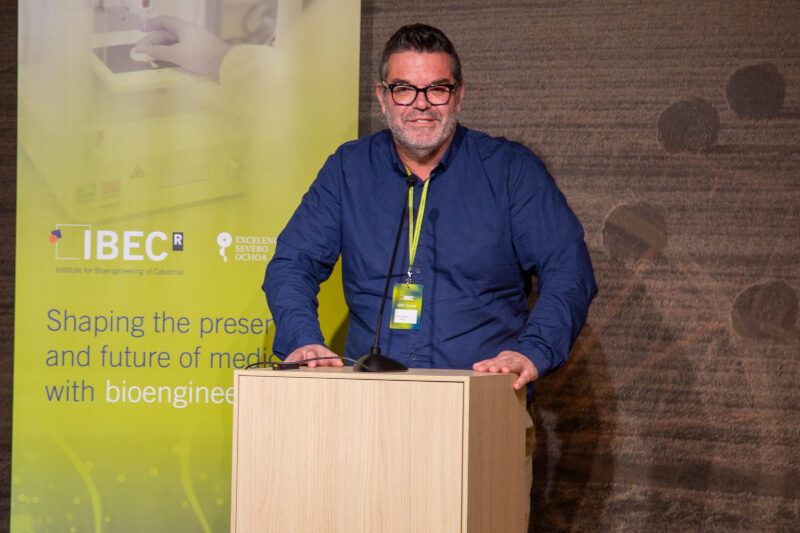
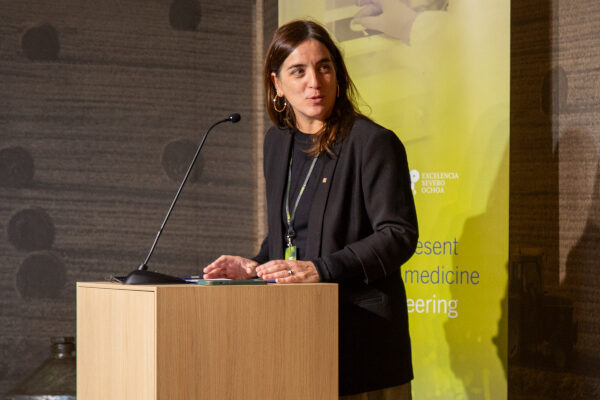
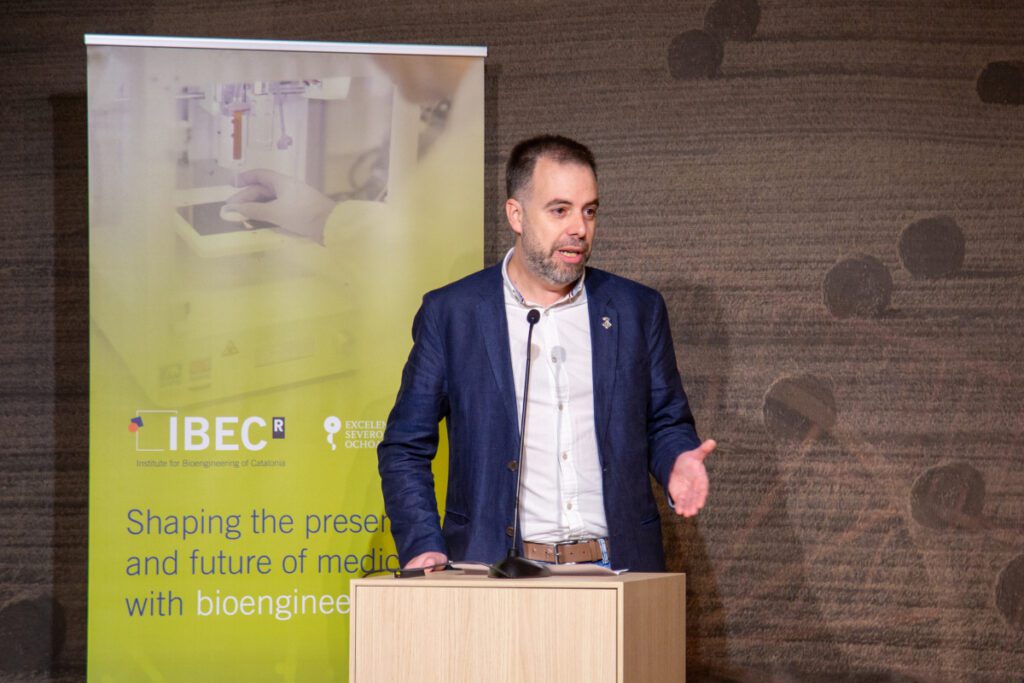
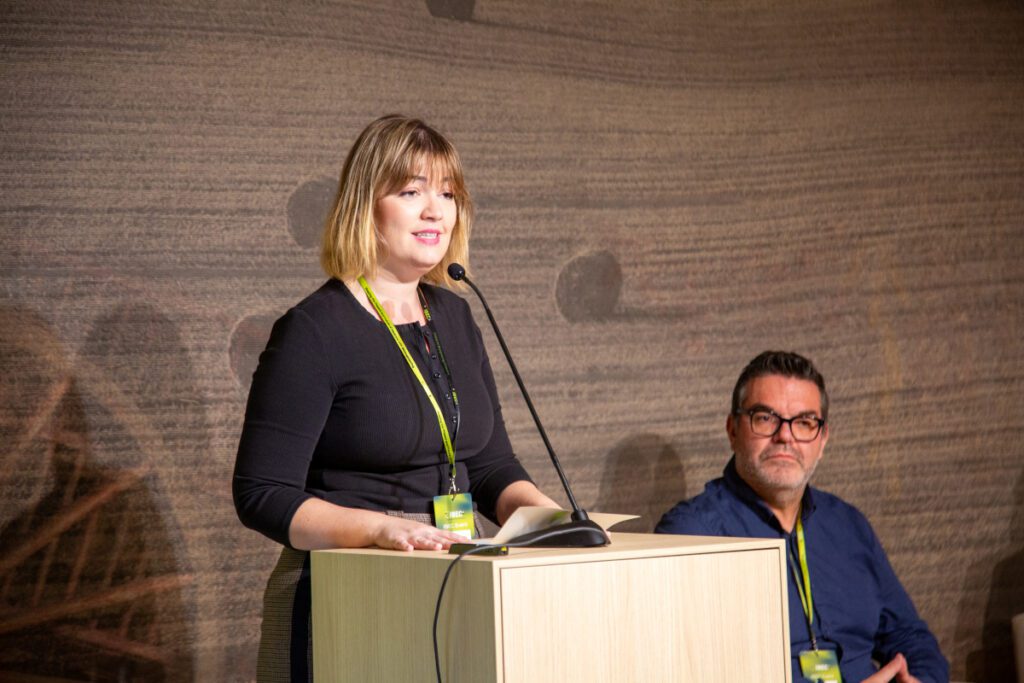
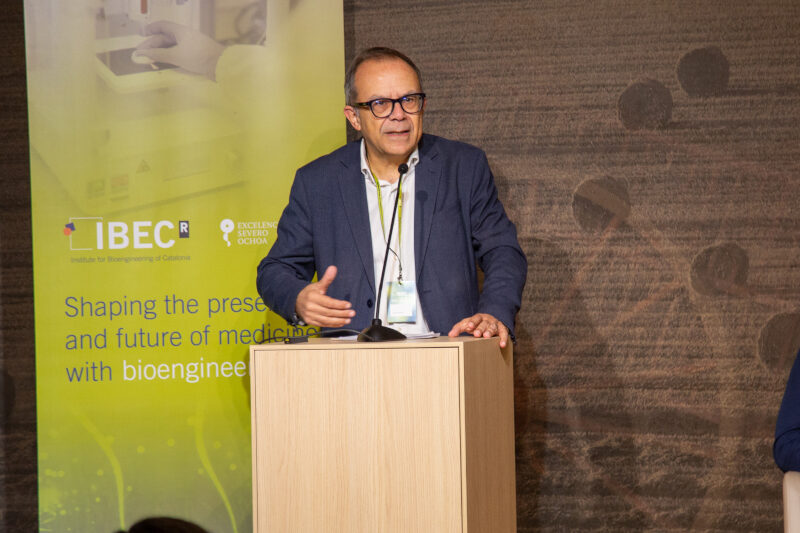
Inspiring Experiences and Scientific Initiatives
Throughout the day, we shared stimulating experiences and scientific and STEAM initiatives developed in schools and diverse rural environments. The aim was to promote interconnection and generate new collaborations between the different agents of the educational and social ecosystem.
Science cannot be the preserve of a few; it must be a window open to the world, including the rural world.
Núria Montserrat Pulido
The presentation session began with ‘Bringing Science to Children: 10 Ideas in 20 Minutes’ by Montserrat Pedreira Álvarez, creator of Lab 0_6. This centre, which is linked to the University of Manresa, specialises in early childhood science education, offering a space for discovery, research and documentation. Lab 0_6 stimulates and improves science education in early childhood through direct contact with children, and offers opportunities for research and the transfer of knowledge generated by the university to society.
Next, Pilar Jiménez Sánchez, head of communications and promoter of the IBEC educational programme, presented the project ‘Bioengineering in rural areas: science education and outreach for all’ in a talk titled ‘The adventure of bringing bioengineering to rural schools: a story of complicity’. Ms Jiménez Sánchez explained that the project aims to decentralise scientific knowledge and promote equal access to scientific education throughout the territory. She highlighted that, to date, more than 1,700 students from rural areas have had the opportunity to learn about science through IBEC. Alongside the travelling educational activities in schools, the project includes educational activities for adults in the same village. These address the latest advances in bioengineering for health and healthy ageing, such as 3D bioprinting and tissue regeneration.
Finally, Gisela Carbajo Bertomeu, the Terra Museum’s Education Coordinator, presented the museum’s educational projects. She emphasised the key role of museums in promoting well-being and making art, culture and science accessible to society. Ms Carbajo Bertomeu also highlighted the Tierra Museum’s role as a cultural centre that invites people to connect with the land and the wisdom of the rural world, encouraging them to imagine more sustainable futures.
Following the presentations, there were two sessions of ‘flash presentations’ showcasing established STEAM initiatives, featuring contributions from educational institutions, educators, and the rural educational community, including Rural School Areas (ZER). Participants included Steam4all (L’Estany), the Lleida Biomedical Research Institute (IRBLleida), the Barcelona Institute of Materials Science (ICMAB-CSIC), the Catalan Institute of Chemical Research (ICIQ) (Tarragona), the Institute of Advanced Chemistry of Catalonia (IQAC-CSIC) and the University of Girona (UdG), the Heurom School (ZER Alt Lluçanès), ZER Carrilet Llevant and the Escuela del Pueblo Nuevo del Delta (ZER Mediterránea).
Experiences in Catalonia were complemented by STEAM initiatives in the rest of Spain. Montserrat Sorribes presented the CELUMBRE Rural Grouping Centre (CRA) and explained the activities carried out in Cinctorres in the Valencian Community. This project promotes a scientific culture rooted in the territory by connecting scientific knowledge with the everyday reality of rural environments. Through practical workshops, research projects, and meetings with scientists, the project seeks to stimulate critical thinking, curiosity, and active engagement with the environmental and social challenges that directly affect these communities. José María Martínez Navarro from the University of Castilla-La Mancha gave an online presentation entitled ‘IteneraSTEAM: Educational innovation to generate community social capital’. Martínez Navarro emphasised the vital role of the relationship between education, culture and science in strengthening the cultural identity of our villages, highlighting the key part played by rural schools in generating collective identity and a sense of community belonging. The main objective of ItineraSTEAM is to extract the scientific knowledge underlying traditional rural practices and resources, with a particular focus on raising the profile of techniques and processes carried out by women.
The conference closed with a Scientific Initiatives Fair, which featured practical workshops open to all attendees, as well as families and residents of L’Espluga de Francolí and nearby towns. Visitors could experiment with topics such as nanomedicine and a toolkit for teaching the nanoworld in the classroom (Spanish Nanomedicine Platform ‘NamomedSpain’), attend a workshop on the brain (IBEC), learn about working on ‘The World and Science’ with young children in the classroom (Heurom School – ZER Alt Lluçanès) and visit a science laboratory on wheels for children (LAB_06 Manresa). There was also a workshop on ‘Electricity and Magnetism in Action’ by ICMAB-CSIC and a workshop called ‘Firefighters and Other Projects’ by Steam4all.
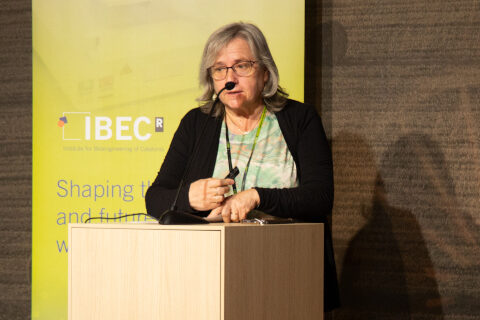
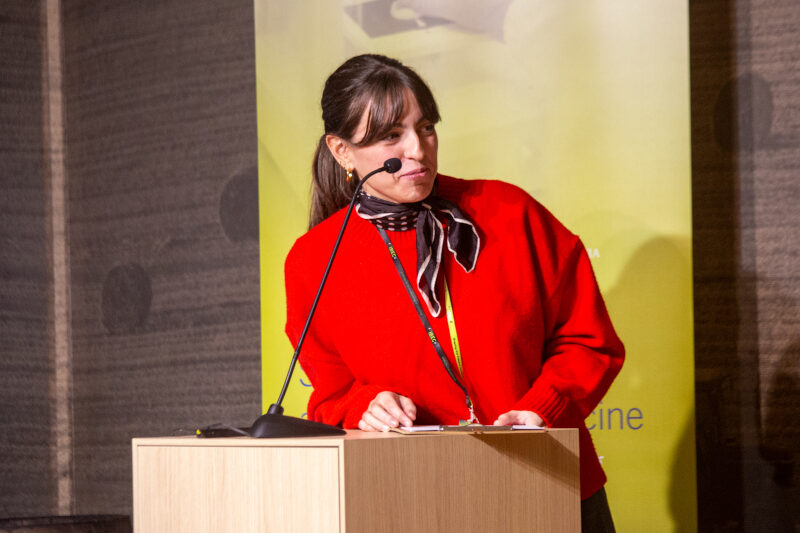
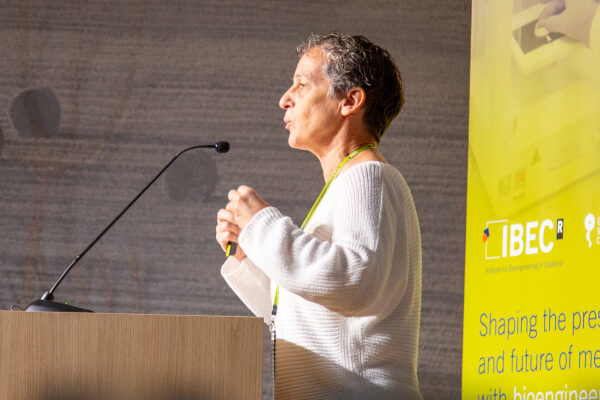
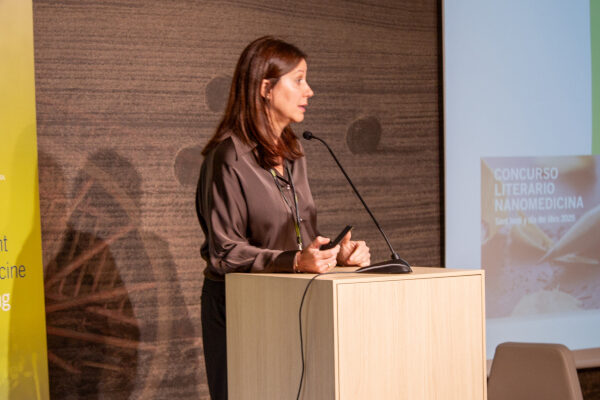
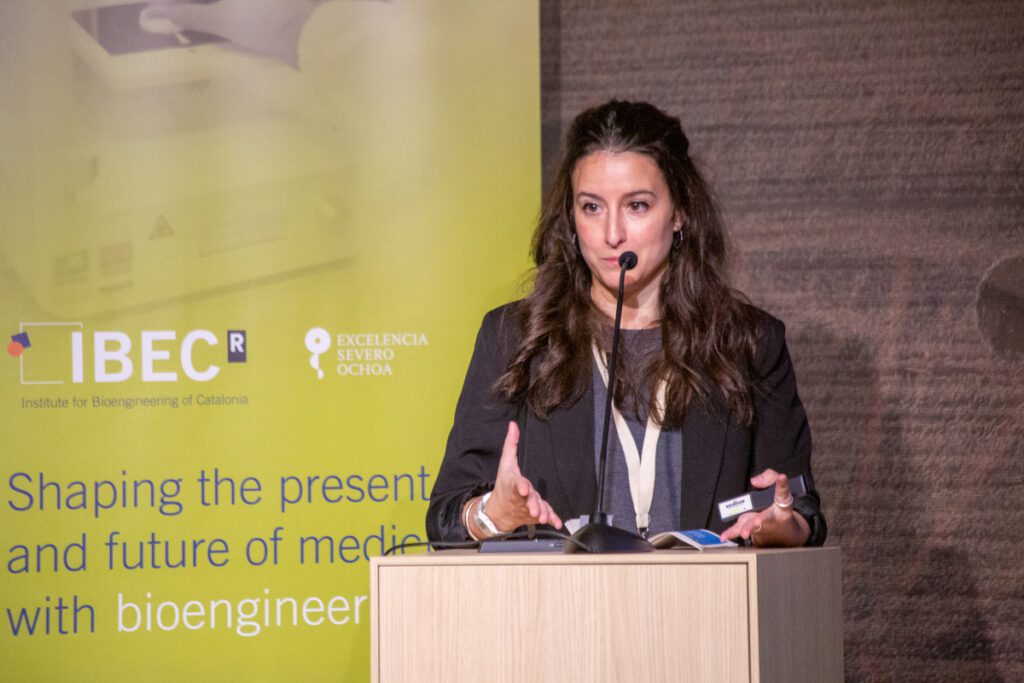
A meeting place to promote science in rural areas
Recognised by the Educational Resource Centre (CRP) and offering participants a 5-hour certification, ‘Science in the Territory’ has fostered valuable interaction, strengthening ties between educational and scientific communities and facilitating new synergies to bring science closer to communities across the country. The participation of the Minister for Research and Universities and the Director General for Research also highlights the government’s commitment to democratising scientific knowledge and dissemination in decentralised areas.
This conference provided an enriching space for the educational community, as well as institutions and entities that promote STEAM projects and activities throughout the territory, to meet and interact. Events such as this encourage scientific education to reach the entire territory equally, avoiding the centralisation of initiatives in large urban centres and ensuring that the entire population, regardless of their geographical location or social background, has access to quality scientific education.
The conference forms part of the ‘Bioenginyeria a les zones rurals: educació i divulgació científica a l’abast de tothom’ project, which is coordinated by IBEC in collaboration with SERC and funded by the Department of Research and Universities of the Government of Catalonia (2023 IMPAC 00016).





